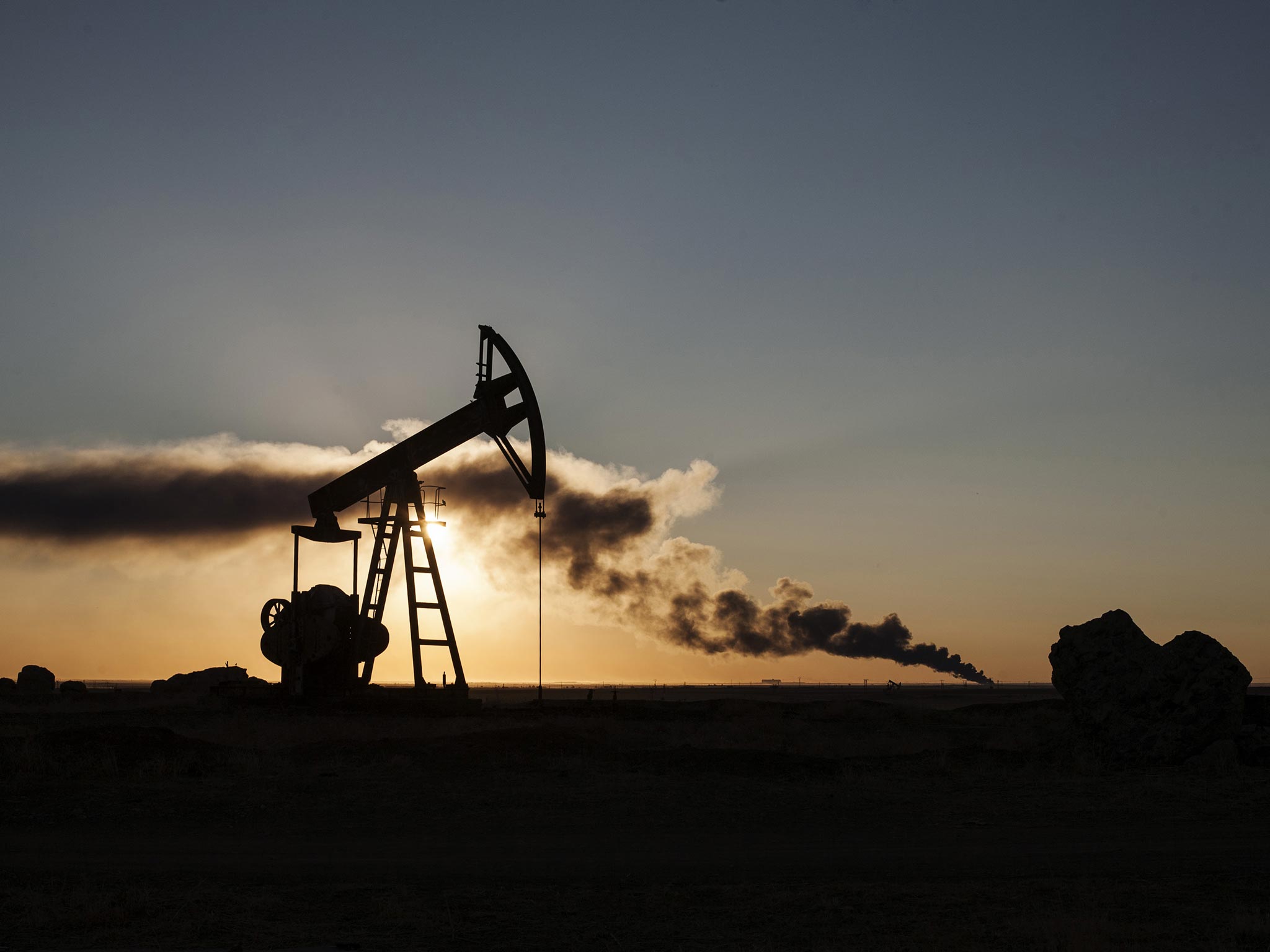Our addiction to oil means that climate change and conflict in the Middle East now go hand-in-hand
Like the addict who will sacrifice his family to feed his addiction, western foreign policy has for decades supported tyrants who have oppressed the peoples of oil-producing states across the Middle East


It would be wrong to argue, as many did in the case of the Iraq War, that the motivation for bombing in Syria is to secure our access to oil. But what is clear is that the Syrian crisis and wider destabilisation of the Middle East has direct links to our addiction to oil. As a poignant reminder of the role oil plays in the conflicts of the Middle East, the first British bombing sorties targeted oil wells in eastern Syria.
Like the addict who will sacrifice his family to feed his addiction, western foreign policy has for decades supported tyrants who have oppressed the peoples of oil-producing states across the Middle East. Our interventions in the region have been driven almost entirely by self-interest, taking little account of the wish for self-determination of the people who live there.
The scientific evidence that our addiction to petroleum is also disrupting the climate is now unequivocal. Equally compelling is the suggestion that climate change is leading to conflict. A working group of the Intergovernmental Panel on Climate Change wrote in 2014 that there was “justifiable common concern” that climate change increased the risk of armed conflict in certain circumstances.Perhaps they had in mind exactly the sort of circumstances witnessed in Syria.
Scientists believe that an extreme drought between 2006 and 2009 was most likely due to climate change. This drought led to crop failures, forcing the migration of up to 1.5 million people from rural to urban areas. This in turn added to social stresses that eventually gave rise to civil unrest and eventually to the civil war.
So from a multitude of perspectives we need to free ourselves from an addiction to oil and evolve beyond the fossil fuel era. A transition to a low-carbon future is now supported by a majority of Europe's MEPs, who last month passed a report calling for the phasing out of fossil fuels by 2050. While such an adaptation is a huge challenge we should remember that fossil-fuel dependency is a relatively recent phenomenon, with the dominance of petroleum dating back only to the middle of the last century.
The renewable energies of the future will not only reduce our carbon emissions but also demand a change to systems of ownership and organisation. And corporate control of energy is already being challenged.
Germany’s Energiewende, or Energy Transformation, is demonstrating how local communities can be empowered when an economy makes a switch from nuclear and fossil fuels to renewables and energy efficiency. By 2013, more than half of investments in renewables had been made by small investors, with large corporations investing relatively little. With the rapid expansion of community owned energy comes the development of local smart grids to replace the now outmoded national grids. So evolving beyond fossil fuels provides opportunities to seize back control of energy supplies and provide genuine power to the people.
Similarly, at the COP21 summit in Paris we saw a move away from the failed top-down approach of Copenhagen towards a bottom-up approach to tackle climate change. Countries first agreed that the problem must be solved jointly and then put forward their own best pledges for what they can achieve. We learned the hard way that nations that have grown wealthy from fossil fuels cannot impose their will on the poorer nations of the world: any solution must be a shared solution that recognises the importance of ‘climate justice’.
Perhaps we need to follow a similar lesson in dealing with the crisis in the Middle East, of which Isis – or Daesh - is the most appalling symptom. Examples of a bottom-up process in building the peace include Northern Ireland, where a Citizens' Inquiry was launched in the early 1990s, organising spaces for public discussion of the conflict. This resulted in the publishing the Opsahl Report in 1993 which became the focus of the peace process negotiations and an IRA ceasefire in 1994.
In Mali, when a number of government commissions were ineffectual in resolving conflict in the north of the country, community leaders decided to do it themselves. A large number of community meetings were organised which sought to address security needs and find solutions to resource conflicts.
We should of course not be under any illusions that winning the peace in Syria will be easy, particularly as the Assad regime is one of the main perpetrators of brutality and violence. However, the coincidence of the Paris climate talks and the vote to bomb Syria serve to emphasise the interconnectedness of planetary crises and the way in which oil, climate and conflict are inextricably linked.
COP21 provided the moment to abandon our dependence on oil for energy, and arms and bombs for solving conflict. The transition to a world that is both sustainable and empowering can only be achieved with shared solutions – so let’s hope, for everyone’s sake, that the agreement is honoured.
Molly Scott Cato is Green MEP for the South West of England, elected in May 2014. She sits on the Economics and Monetary Affairs Committee in the European Parliament. She is also Green Party speaker on finance.
Join our commenting forum
Join thought-provoking conversations, follow other Independent readers and see their replies
Comments